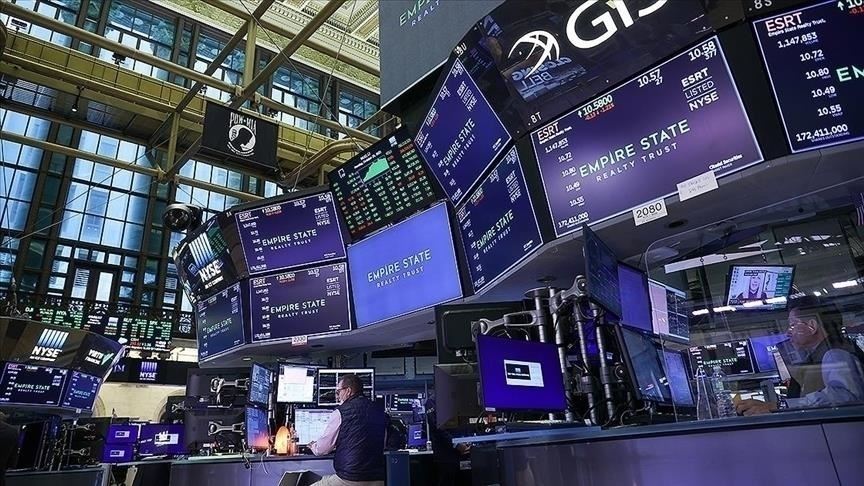While the expectations that central banks will tighten their monetary policies more rapidly continue to negatively affect the investor risk perception, the increasing number of cases in the new type of coronavirus (Kovid-19) epidemic, especially in Asian countries, remains on the agenda. Adding to these developments the increasing tension between Russia, the USA and NATO due to Ukraine caused the volatility in the stock markets to rise and sales accelerated last week.
Looking at the new week, the Fed's interest rate decision from the first meeting of the year to be held on Wednesday and the messages that the bank will give in the text of the decision will have an impact on the direction of the markets. In the speech of Fed Chairman Jerome Powell after the meeting decision is announced, clues about the future of monetary policy will be sought. In the week when the data agenda is also very busy, the first Inflation Report meeting of the CBRT will be followed in the country, as well as the balance sheets that companies will start to announce for the last quarter of last year.
Before these developments, it is noteworthy that the first trading day of the week, which will be followed by the services and manufacturing industry Purchasing Managers Index (PMI) data to be announced in the USA and the Euro Zone, started with a mixed course in Asian stock markets and a buyers trend in European and US index futures.
A sales-heavy trend was followed in the New York stock market, with the company balance sheets and economic data announced in the USA showing a mixed outlook last week. On a weekly basis, the S&P 500 index lost 4.92 percent and the Dow Jones index depreciated by 4.58 percent, while the Nasdaq index fell by 7.55 percent, the hardest since March 2020, with the deepening of sales in technology stocks. The US 10-year bond yield, which closed at 1.73 percent after testing the highest level in 2 years with 1.90 percent last week, started the new week at 1.78 percent levels. The dollar index, on the other hand, is flat today after completing the previous week at 95.6 levels with an increase of 0.5 percent.
On the European side, the tensions between Russia and Ukraine, as well as the developments in energy prices and the statements of monetary policy makers regarding inflation were followed. The FTSE 100 index in the UK was 0.65 percent, the DAX index in Germany was 1.76 percent, the CAC 40 index in France was 1.04 percent and in Italy there was a sharp decline in the share markets due to the decline in the global risk appetite. The MIB 30 index fell by 1.75 percent. After closing at 1.1342 with a decrease of 0.6 percent last week, the euro/dollar parity is moving around 1.1325 with a decrease of 0.1 percent today.
On the Asian side, last week, the People's Bank of China continued its easing steps towards the loan market and cut some interest rates, while the Bank of Japan (BoJ) has not changed the interest rates and monetary policy, but has not changed its risk assessment for prices, which it had previously stated as "downward", since 2014. identified as "balanced" for the first time since. On the Asian side, where epidemic measures are also implemented with the high number of cases, it is seen that the stock markets, which followed a mixed course last week, started the new week with a decline.
According to the data released today, after the manufacturing sector PMI in Japan increased by 0.3 points to 54.6 in January compared to the previous month, the Nikkei 225 index gained 0.30 percent and the Shanghai composite index in China gained 0.20 percent. The Sensex index fell 1.2 percent and the Hang Seng index in Hong Kong fell 0.8 percent.
The BIST 100 index, which followed a fluctuating course in Borsa Istanbul throughout the past week, lost value by 0.15 percent and closed at 2,011.16 points on Friday. The index lost 2.98 percent on a weekly basis. Dollar/TL started the new week at 13.4490 levels at the opening of the interbank market, after losing value by 0.4 percent last week and closing at 13.4612.
Analysts said that this week, geopolitical risks and inflation concerns are expected to continue to be the main factor driving the equity markets, adding that investors may take a cautious stance and seek direction before the Fed's interest rate decision.
Stating that today's data agenda includes the financial services confidence index in the country, and the service and manufacturing sector PMI data to be announced in the Eurozone and Germany abroad, analysts stated that, technically, 2.070 levels in the BIST 100 index are in the position of resistance, and 1.970 and 1.950 points are in the support position.
The data to be followed in the markets today are as follows:
10.00 Turkey, January financial services confidence index
11.30 Germany, January manufacturing and services PMI
12.00 Eurozone, January manufacturing and services PMI
12.30 UK, January manufacturing and services PMI
16.30 US, December Chicago Fed national activity index
17.45 US, January manufacturing and services PMI









Comments
No comment yet.